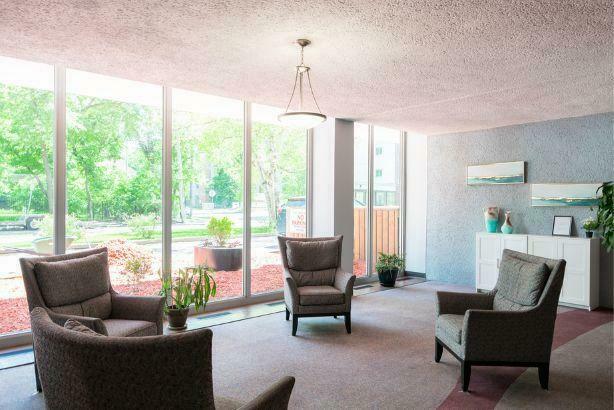Menu

It’s been a long journey, but after weeks of browsing online listings and visiting apartment after apartment, you’ve finally found it. The one. The place you can hang your hat and call home.
Choosing an apartment is not something to take lightly. It’s a place you’ll spend much of your time in the next 12 months or so. Naturally, you want one that will be the best fit for your lifestyle and your budget.
Signing a lease is a big deal. What do you need to know before you add your signature to that dotted line?
Below, we’ve listed the most important questions to ask before committing to an apartment. Have a discussion with the prospective landlord or property manager about the following:
If you’re currently bound to a rental agreement at a different property, this question is especially important. You need an apartment that becomes available the day you move out! Check the fine print on this one because it can make all the difference.
A security deposit covers the damages you may cause to the unit while you live there. Upon moving out, your security deposit should be returned to you after any damages are factored in. Be sure to ask how much the security deposit is; usually, it’s between half of or a full month’s rent.
But if there is no damage to the rental unit, and you leave it in the same condition you received it in, then you should ask: “Is the security deposit refundable?”
Paying rent is an inevitable part of living in an apartment. But how do you pay rent?
These days, most tenants prefer to do online payments. It’s convenient and ensures the payment is received instantly.
Some property managers may want cheques. Ask what their preferred payment method is so that you aren’t in for a surprise come the 1st of the month.
You should also ask about late fees. See if your property manager will charge you for each day you’re late on rental payments (and by how much) or if they offer a grace period for payments that are a day or two late.
This varies from building to building. With some rentals, you may be required to cover the cost of electricity, heat, and water. With others, all you need to pay is the monthly rent.
Factor in utility costs when you’re budgeting for a place. For example, the rent alone may be affordable, but what if the place has baseboard heaters? Your heating bills in the winter may surpass $100/month, depending on the size of the apartment and how well-insulated it is.
Make sure to ask about utilities in advance of signing a lease. The property manager may be able to give you estimates of how much each utility will cost monthly.
And if you find out you’re responsible for paying certain utilities, you can set up accounts with those utility companies ahead of time.
On the fence about buying renter’s insurance? Your property manager may require that you purchase it before you move in.
And this isn’t a bad thing! Tenant insurance protects you in the event of a fire, theft incident, liability, and/or vandalism. This is separate from the insurance that your landlord has, which only covers the building itself—not the contents of your unit.
With tenant insurance, you can cover the cost of property damage and replace your belongings after an insured peril.
Does your apartment include a parking spot? What about the internet or cable? Is there a pet policy?
You can’t always have it all. But if you’re choosing between a few apartments, make a list of which amenities are most important to you. For example, if you drive a car, then you’ll need a parking spot more than cable TV.
In other words, how long does the lease last?
In most cases, leases last for 1 year. But they may be for 6 months, 18 months, or 2 years. This is an important thing to double-check before you sign off on the lease.
Here’s another question to ask: If you decide to leave your apartment before the lease is up, what’s the policy for ending the lease early? Check on how much notice is required and if you need to find someone to sublet it.
It happens: As careful as you are, sometimes things break down. It could be your fridge; it could be your heating system. You rely on these appliances to keep your food fresh and your apartment safe. Timely repairs are crucial. If something goes wrong, who do you call?
Ideally, you want to live somewhere maintenance requests are handled promptly. Find out how the property manager handles maintenance requests—and how quickly you can expect a response when something goes wrong.
Are you moving in with a roommate or partner? Ask the property manager what the protocol is when one person fails to pay rent.
Since both of your names are on the lease, this is especially important. You may be financially responsible for upholding your roommate’s half of the rent if they fail to pay. Find out what will happen if one person starts missing payments or moves out suddenly.
Before you sign along the dotted line, make sure you’re crystal clear on all the lease terms.
Haven’t found the right place just yet? At Globe Property Management, we help you find the best rental apartment to suit your needs. We pair top-notch property management with beautiful suites. On our website, you’ll find dozens of Winnipeg apartments for rent. Contact us today!